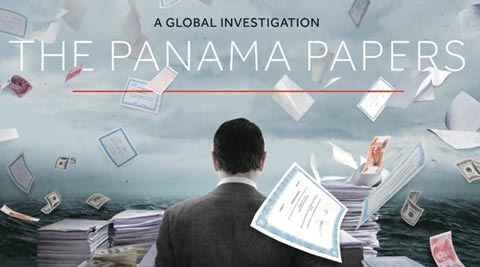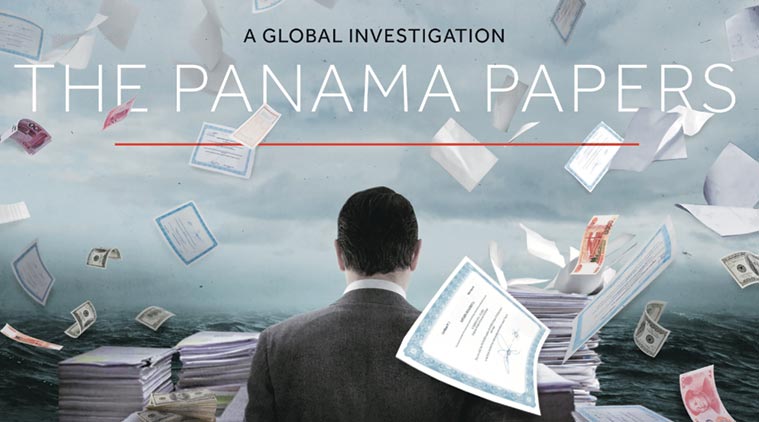Opinion The Panama portent
Angry populism against corrupt elites could grow. But in India, reaction will be muted.

 The revelations painstakingly lay bare a complex web of activities: From illegality to evasion to sophisticated legal arbitrage.
The revelations painstakingly lay bare a complex web of activities: From illegality to evasion to sophisticated legal arbitrage.
What will be the ideological and political implications of the explosive “Panama Papers”? The short answer is, of course, it depends on the context. It is hard to predict the political implications. But there is reason to think that the response to these revelations will be quite chaotic and not quite add up to the magnitude of what has emerged. The revelations painstakingly lay bare a complex web of activities: From illegality to evasion to sophisticated legal arbitrage. As many commentators have pointed out, in authoritarian countries like China and Russia, these revelations will not come as a surprise.
Watch all Panama Related Videos here
READ | #PanamaPapersIndia Part 5: Art dealer, tea baron kin, entrepreneur couple
Will they add any more information that leads to the internal de-legitimisation of these regimes? That is doubtful. In fact, in the short run, it will lead to more censorship. It will probably have the effect of these regimes doubling down: It will create more incentives to project the West as harbouring hostile intent, wanting regime change by stealth. The “source” and motive behind these leaks is not clear, so it is easy for elites to put a conspiratorial construction on them.
READ | Panama Papers: Thickest file is on NRI hedge fund manager in US prison
The only dynamic by which they might produce change is if the revelations give various factions inside these regimes information they can use against each other. This is less of an issue in Russia probably. But how this will play out in China will depend on the degree of elite cohesion. But these revelations are unlikely to have an effect on mass political mobilisation.
Contrary to standard arguments, these revelations may turn out to be more of a political issue for liberal democracies in the West. There has been speculation about the absence of American names so far, though that is not surprising. The scale of the problem of tax havens has been academically most rigorously documented by Gabriel Zucman’s The Hidden Wealth of Nations: The Scourge of Tax Havens, which estimates that about $7.5 trillion is held in tax havens. The papers expose the mechanics of how this works. As various governments are publicly showing, the pressure to close tax havens will increase, although there is still no reckoning with the question of why they were allowed to continue in the first place.
READ | Missing from Oberoi stable: A firm each in the Bahamas, Hong Kong
The most astonishing thing about these revelations is just how widespread these practices are (and we only have revelations from one law firm). They cut across regime types, across ideological allegiances. They involve a variety of professions, from sport stars to lawyers, tycoons to politicians. Traditionally, suspicion of the rich has been focused on two classes: Financial capital and, for accountability reasons, politicians. But here is the possibility of massive de-legitimisation of large sections that have gotten rich, including professionals and sport stars. The conditions of a populist backlash are limited if the targets are particular groups, like bankers or capitalists. But if the suspicion grows that wrongdoing is more generalised to the rich, that elites are inherently corrupt no matter what their occupational status, discontent can grow massively.
READ | Panama Papers: Arun Jaitley warns of sleepless nights for illegal firms
Railing against corrupt bankers is one thing; the wholescale de-legitimisation of elites is another. On the other hand, it also reduces the possibility of different sections of the elite acting as checks on each other. In all liberal democracies, there is a concern around two issues: Inequality and globalisation. These kinds of revelations only sharpen the divide on them. A globalisation that gives the sense of not being under the regulatory control of governments is likely to be even less popular. One likely implication of this is that the room for angry populism will grow.
READ | Panama Papers: Ruchi Group’s boss has ten offshore firms — and a CBI FIR
One of the things that will need sorting out in these revelations is which of these transactions are legal and which of them involve genuine illegality. From the point of view of politics, this distinction may make less difference. In fact, it might be even more dispiriting to learn that the problem is not that a few people are breaking the law or cheating. The problem is that the system is systematically rigged so that the privileged can legally get away with avoiding tax commitments in ways in which ordinary mortals cannot. The national and global orders are structured to give wealthy individuals and corporations a free pass. The problem is not individual cheating or corruption but structural corruption.
For countries like India, sorting out the legal from the illegal will itself be a herculean task. The capability of our system to handle these investigations with credibility is low. This actually cuts down the room for making fine distinctions that any credible state needs to make. On the one hand, significant sections of the population feel the privileged have gotten away scot free, so the sentiment is punitive. On the other hand, a significant section of Indian capital feels that instruments like the black money law are not as much about preventing black money as they are tools of harassment. In fact, there is palpable tension between the ease of doing business imperatives and projecting a strong line on black money. In theory, this can be resolved, but in administrative practice, this tension is putting stress on the state.
But in the particular case of the Panama Papers, the reaction in India may be muted for two reasons. India’s elites love ranting against politicians partly because it disguises the fact that large sections of them may be complicit in structural evasion if not illegality. Now these elites will give each other a free pass. And the question of whether people are actually guilty of illegality or are using legal means will take too long to sort out anyway. The second issue in India’s political economy: The number of direct taxpayers is very small. Since a vast majority of the population is excluded from the ambit of taxpaying, it is not clear that we feel as cheated by instances of tax avoidance — legal or illegal. The connection between taxation and civic commitment has never been made in India. The only classes that might feel cheated are the salaried classes who faithfully pay direct taxes. But they are not going to be politically significant.
In short, the “Panama Papers” will increase the general alienation from legitimacy of elites. But whether that will translate into any institutional or political response remains to be seen.




